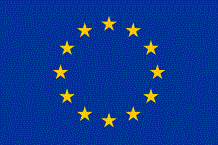Wilfred Leslie Willett (1890-1961), a medical student, married Eileen Stenhouse (1892-1961) in 1913 (and again in 1914). He joined the London Rifles (1/5th battalion, The London Regiment) in 1914 and was injured in December of that year, when he climbed out of the trenches at Ploegsteert to attempt to assist an injured man (Private, later acting Captain Ernest G Moore) in No Man’s Land. The injury was a severe head injury.
In a letter to his parents (quoted in the newspapers) E. G. Moore wrote:
… I was at work levelling the parapet of a newly dug trench … I suddenly felt a terrific bang against my side. As soon as other fellows realised that I was hit, they called for Lieutenant Willett, who is well on his way to being a qualified doctor.
He came along, and just said my wound was only a flesh one, when a bullet from the wretched snipers, who must have hidden in a house behind our lines hit Mr. Willett’s face while he was still kneeling by my side. …
Eileen concerned about the sudden lack of letters from Wilfred visited the regiment’s London Headquarters and demanded to know what had happened to her husband. They eventually told her that he was gravely wounded and in Base Hospital at Boulogne in France. She then went to the Foreign Office and demanded a passport and after several refusals she was given travel documents (signed by Sir Edward Grey, then Foreign Secretary) for a trip to France. She (aged 22) travelled out there alone, located her husband and when she determined that the hospital felt unable to do anything for him arranged (after much resistance) for him to be repatriated.
Having got him into the Duchess of Norfolk’s Convalescent Home in Belgrave Square, London, she then discovered that they felt they could do nothing for him. So she arranged for him to be removed to the London Hospital where he had been training, where one of the team felt that they could perform a difficult operation to remove the shrapnel fragments from his brain. Because he was still in the care of the army, Eileen had to arrange for him to be smuggled out at night. However, they were spotted doing so and the Duchess was summoned and Eileen again had to demand to be permitted to take her husband elsewhere.
The operation almost certainly saved his life but it took a long time for him to make a partial recovery. Although partly physically disabled, he was active and took a great interest in ornithology and agricultural affairs. He published many books on British birds and was an active trade union organiser (in Kent) for the National Union of Agricultural Workers. He also joined the communist party.
He died in 1961 six weeks after the death of his wife. For his action in caring for Private Moore he was mentioned in dispatches. (He was a nephew of the William Willett of Daylight Saving fame.)
Their story was originally published in slightly fictionalised form by Jonanthan Smith as “Wilfred & Eileen“. In the 1980s this book formed the basis for both a radio play and a TV mini-series (broadcast on BBC1 around Remembrance Day 1981, and staring Christopher Guard and Judi Bowker, with Michael Aldridge as Mr Jenkins the Surgeon). Marjorie Seldon (their eldest daughter) later published a fuller family biography called “Poppies and Roses“.
Postscript
I have posted elsewhere about a soldier, Lance Corporal John Morrison, 1st Battalion The Black Watch, (who in very similar circumstances to the story of Wilfred’s injury) went to the aid of his officer, but died in doing so. His officer was Wilfred’s brother.

[…] Henry Willett – father of Wilfred Willett – born in Q1 1863 in […]
Pingback by Are We Related: Willetts of Essex and Berkshire « Faulder Family Genealogy — 16 October, 2016 @ 10:24 pm